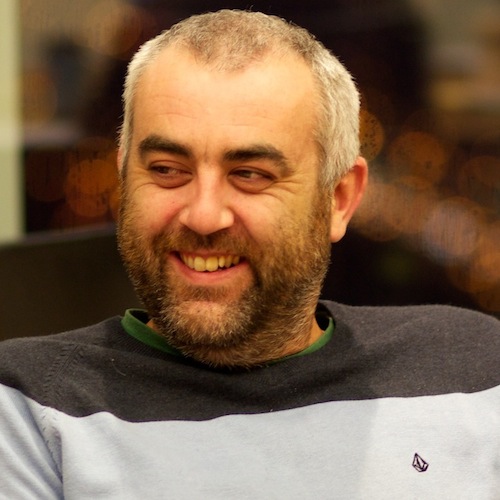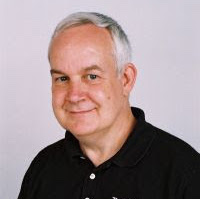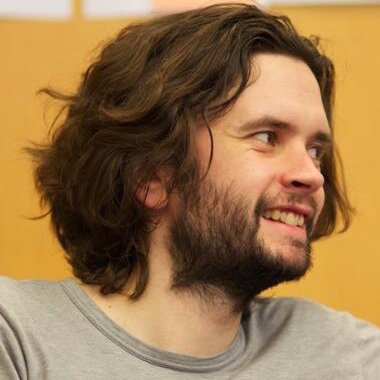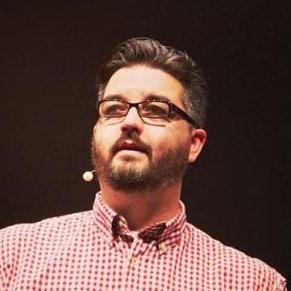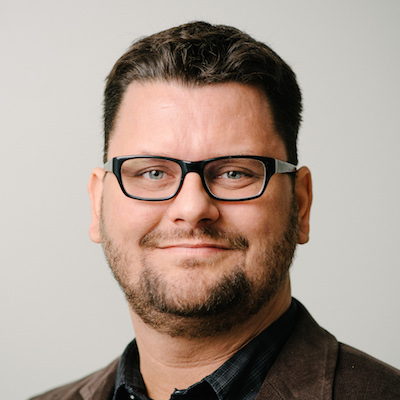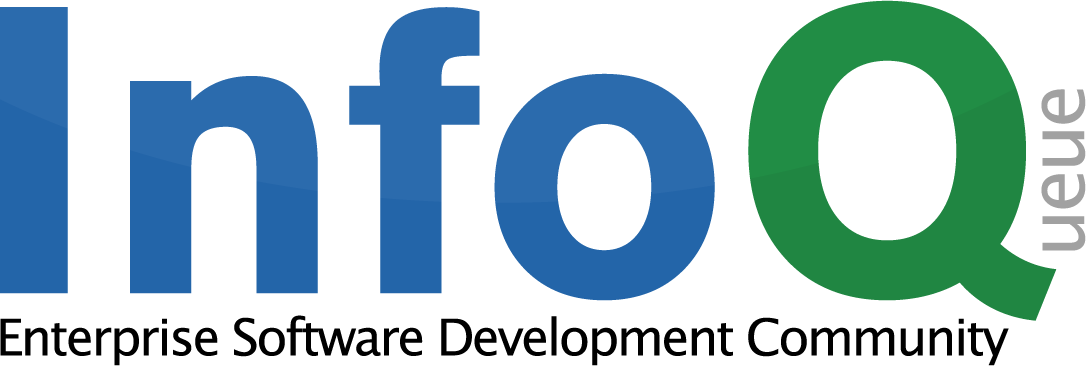Berlin
Kalkscheune2015
12th & 13th FebruaryMany Speakers
250 Seats
Conference Videos
The Videos of the german talks are available on Youtube and the english talks on InfoQ.
Speakers
Schedule
12th February
-
Microservices - The One with the Polyglot Portfolio (James Lewis)
Language: English
James’ recent paper on microservices describes nine common things he has seen in organisations using microservices. One of these things is decentralised governance. As CTO’s, developers, architects and operations folk we are often scared of taking on too many technologies. Whether that’s the web stack, persistence or integration. Our organisations standardise on single stack solutions, often because “we’ve already got licenses” or “we only have the skills for xxx”. One organisation that exhibits many of these characteristics has been on an eventful journey over the last few years .This talk is about that journey from single-stack, big governance and high ceremony to polyglot programming, decentralised governance and product teams. With courageous leadership, an enthusiastic technology team and an engaged business the experience has been a transformative one. Come along, it should be fun - there’s even a fluffy bunny.
James Lewis
James Lewis is a Principal Consultant for ThoughtWorks UK. He has helped introduce evolutionary architecture practices and agile software development techniques to various blue chip companies: investment banks, publishers and media organisations. James studied Astrophysics in the 90’s but got sick of programming in Fortran. As a member of the ThoughtWorks Technical Advisory Board, the group that creates the Technology Radar, he contributes to industry adoption of open source and other tools, techniques, platforms and languages. For the last few years he has been working as a coding architect on projects built using microservices; exploring new patterns and ways of working as he goes. James has spoken at a number of UK and international conferences. His favorite topics range from domain driven design, SOA and the future of the web to agile adoption patterns and lean thinking. He’s also heavily involved in the fledgling microservice community. He rather likes the fact that he got to describe his take on things jointly with Martin Fowler in an article that is influencing how people see the future of software architecture. Sometimes he blogs at http://bovon.org.
-
Coffee break
-
Gut das ist? Die umgekehrte Architekturbewertung eines Internet-Giganten (Stefan Zörner)
Language: German
Netflix - das größte Internet-Business in den USA - zeichnet sich zeitweise für ein Drittel des gesamten Downstream-Traffics des Webs verantwortlich. Die Erfolge der Video-on-Demand Plattform basieren nicht nur auf einer guten Geschäftsidee, sondern auch auf top-modernen, effizienten und robusten Technologien, Frameworks und Architekturansätzen. Was können wir daraus lernen? Ist es an der Zeit unsere Systeme und Architekturen in Microservices zu refactoren, große Datenbanksysteme aufzubrechen, polyglott zu programmieren und reaktive Ansätze zu verwenden? Diese Session hilft Ihnen bei der individuellen Beantwortung dieser Fragen. In einer umgekehrten Architekturbewertung haben wir jene Anforderungen und Rahmenbedingungen herausgearbeitet, die man haben müsste, um die Netflix-Architektur als ideal zu bewerten. Welche Qualitätsaussagen müssten Ihnen wichtig sein? Zu welchen Kompromissaussagen müssten Sie „ja“ sagen? Welche Risiken müssten Sie eingehen und welche Rahmenbedingungen bräuchten Sie?
Stefan Zörner
Stefan Zörner unterstützt Softwareentwicklungsteams in Architektur- und Umsetzungsfragen mit dem Ziel, gute Architekturansätze wirksam in der Implementierung zu verankern. Er arbeitet bei embarc in Hamburg. Sein Buch über Architekturdokumentation ist im Hanser-Verlag erschienen. Stefan ist Committer im Directory Project der Apache Software Foundation und Board-Mitglied im iSAQB.
-
Spring Cloud - A Toolbox for Distributed Systems (Oliver Gierke)
Language: English
Coordination of distributed systems leads to boiler plate patterns, and using Spring Cloud developers can quickly stand up services and applications that implement those patterns. Spring Cloud provides tools for developers to quickly build some of the common patterns in distributed systems (e.g. configuration management, service discovery, circuit breakers, intelligent routing, micro-proxy, control bus, one-time tokens, global locks, leadership election, distributed sessions, cluster state). They will work well in any distributed environment, including the developer's own laptop, bare metal data centers, and managed cloud platforms. The talk summarizes the problems the projects tries to solve and introduces the individual modules of it using practical code examples.
Oliver Gierke
Oliver Gierke is the lead of the Spring Data project at Pivotal, formerly known as SpringSource, and member of the JPA 2.1 expert group. He has been into developing enterprise applications and open source projects for over 8 years now. His working focus is centered around software architecture, Spring, REST and persistence technologies. He is regularly speaking at German and international conferences and the author of technology articles as well as the first book on Spring Data.
-
Lunch
-
Building Event-Driven Microservices with Scala, Functional Domain Models and Spring Boot (Chris Richardson)
Language: English
In this talk you will learn about a modern way of designing applications that’s very different from the traditional approach of building monolithic applications that persist mutable domain objects in a relational database.We will talk about an event-driven microservice architecture, it’s benefits and drawbacks and how Spring Boot can help. You will learn about implementing business logic using functional, immutable domain models written in Scala. We will describe event sourcing and how it’s an extremely useful persistence mechanism for persisting functional domain objects in a microservices architecture.
Chris Richardson
Author of POJOs in Action, Founder of the original Cloud Foundry PaaS, Java Champion, JavaOne Rock Star
-
Coffee break
-
Microservices - stressfrei und ohne erhöhtes Herzinfarktrisiko (Uwe Friedrichsen)
Language: German
So ein Microservice ist ja fix geschrieben: Überschaubare Funktionalität, ein kleines REST-Interface, ist ja 'ne feine Sache und viel cooler als diese fetten Web-Anwendungen von früher. Aber ist das wirklich so einfach? Nun ja - jein! So ein einzelner Service für sich ist recht überschaubar und einfach, nur löst sich die Komplexität damit ja nicht in Wohlgefallen auf. Statt weniger großer Web-Anwendungen haben wir jetzt viele Microservices - und damit Integration, Betrieb und Weiterentwicklung nicht zum Lotteriespiel mit erhöhtem Herzinfarktrisiko werden, muss man ein paar Dinge beachten, die bei klassischen Web-Anwendungen nicht (so) wichtig waren. Ist REST eigentlich richtig oder sollte es doch besser Event-driven sein? Was muss ich tun, damit das Zusammenspiel klappt? Mit UI oder doch besser ohne UI? Wie stelle ich die Verfügbarkeit und Skalierbarkeit in Betrieb sicher? Wie deployt man einen Service am besten? Wie sorge ich dafür, dass man Services einfach austauschen kann? Wie vermeide ich Service-Spagetti? Auf diese und andere Fragen gibt es Antworten in dieser Session und zeigt mögliche Umsetzungen auf.
Uwe Friedrichsen
Uwe Friedrichsen ist ein langjähriger Reisender in der IT-Welt. Als Fellow der codecentric AG ist er stets auf der Suche nach innovativen Ideen und Konzepten. Seine aktuellen Schwerpunktthemen sind Skalierbarkeit, Resilience und die IT von (über)morgen. Er teilt und diskutiert seine Ideen regelmäßig auf Konferenzen, als Autor von Artikeln, Blog Posts, Tweets und natürlich gerne auch im direkten Gespräch.
-
Microservice Challenges (Fred George)
Language: English
Having implemented MicroServices in three different companies (with a corresponding variance in usage), several key challenges have emerged that inhibit effective implementation of MicroServices. This presentation discussed two of those challenges. 1) Programmers have difficulty creating MicroService algorithms in the unfamiliar asynchronous bus model; and 2) functional programming seems to benefit less from MicroServices, and may even be at odds with the approach. This presentation explores both of these challenges and speculates on their impact long-term.
Fred George
Fred George is a developer and co-founder at Outpace Systems, and has been writing code for over 45 years in (by his count) over 70 languages. He has delivered projects and products across his career, and in the last decade alone, has worked in the US, India, China, and the UK. He started ThoughtWorks University in Bangalore, India, based on a commercial programming training program he developed in the 90’s. An early adopter of OO and Agile, Fred continues to impact the industry with his leading-edge ideas, most recently advocating MicroService Architectures and flat team structures (under the moniker of Programmer Anarchy). Oh, and he still writes code!
-
Evening Event and Panel
Language: English
Adrian Cockcroft, Andrea Stubbe, Fred George, James Lewis and Oliver Wegner join Stefan Tilkov for an open discussion about the do’s and don’t’s of microservices. We will try to get the audience to ask the most important questions that are still open after the first day of the conference, and make sure we address the skeptics’ arguments. Have anything you’d like Stefan to ask the panelists? Send him your favorite question to @stilkov on Twitter or be there when our panel starts to ask it yourself.
-
Domain Service Aggregators : A Structured Approach to Microservice Composition (Caoilte O'Connor)
Language: English
Discrete Microservices that cleanly map on to narrowly defined domains provide a solid architectural foundation for a system. "Domain Service Aggregator" is a label we have found useful for describing another type of Microservice. It encapsulates non-trivial intersections of the Domain Microservices. This talk will demonstrate how and when the Domain Service Aggregator Archetype can help you. We will use the architectural evolution of "Video on Demand" in a broadcast company as a working example. Along the way we will consider, how Domain Service Aggregators differ from the Netflix "API Gateway Pattern", how CAP theorem and caching concerns should inform your architectural decisions, CQRS and its relationship with Microservices, avoiding "Domain Bleed" through good RESTful API design with HATEOAS and Versioning pitfalls.
Caoilte O'Connor
Caoilte O'Connor is a developer at ITV, the UK's largest Commercial Terrestrial TV Network. He has spent the last 18 months carrying out digital archaeology on the accumulated strata left by successive Enterprise Service Bus implementations. His team has recently begun rolling out a new generation of TV apps and websites based on a Microservices Architecture. Caoilte also champions Functional Programming and Continuous Delivery.
-
Coffee break
-
Measuring Microservices. (Richard Rodger)
Language: English
The micro-service architecture has changed the game for software development. It provides the first scalable, effective component model for software systems. By embracing the organic, dynamic and chaotic nature of micro-services, you can built fault-tolerant, scalable and reactive systms. But there is a dark side. Things can get out of control very quickly. As the number of micro-services, and messages and interactions between them grow, how do you keep control? How do you retain understanding of the system? How can you offer any commitments about its behaviour to your CEO? The answer is to embrace the complexity of the system, and recognize that it has emergent properties. Rather than auditing and tracking technical behaviour, measure the behaviour you care about, the business outcomes. This allows you to understand the effects of new deployments and failures at the right level. This talk will cover the measurement techniques that we have found to be most effective in the wild. The most useful metrics, and the best ways of capturing them is something we've discovered the hard way over the last three years. Embrace and build micro-services without fear of creating a monster!
Richard Rodger
Richard Rodger is the CTO of nearForm.com, a Node.js consultancy that builds large-scale micro-service systems. Richard is the author of Mobile Application Development in the Cloud (Wiley 2012), and was formerly CTO of feedhenry.com, a mobile applications platform. He is a regular contributor to the Sunday Business Post newspaper in Ireland, and holds degrees in Mathematics and Philosophy, and Computer Science.
-
Gibt es etwas zwischen Microservices und monolithischen Architekturen? (Oliver Wegner)
Language: German
Der Trend zu Microservices in komplexen Systemumgebungen ist die architektonische Antwort auf agile Softwareentwicklung und Continuous Delivery. Kleine Systeme, die unabhängig voneinander entwickelt und separat betrieben werden können - eine Architektur als Enabler für das Business. Den Vorteilen gegenüber stehen aber die klassischen Herausforderungen der Integration. Wie sehen Integrationstests aus, wie kann der übergreifende Betrieb sichergestellt werden und wie werden fachliche Abhängigkeiten behandelt? In diesem Vortrag werde ich anhand der neuen E-Commerce Plattform von OTTO aufzeigen, wie wir den Monolithen Otto.de in vertikale Systeme aufgeteilt und dadurch ein agiles Arbeitsumfeld ermöglicht haben. Besonders für die organisatorischen Konsequenzen werde ich Lösungsansätze mit ihren Vor- und Nachteilen vorstellen. Klassische Querschnittsaspekte wie Tracking, Performance und Security haben wir in die Architektur integriert und diese damit im Laufe der Zeit kontinuierlich weiterentwickelt.
No Slides
Oliver Wegner
OTTO, Leiter Architektur und Qualitätssicherung im eCommerce-Bereich Oliver Wegner leitet die Architektur und Qualitätssicherung im eCommerce-Bereich bei OTTO. Er verantwortete die Neuentwicklung von Otto.de und etablierte dabei eine agile Produktentwicklung. Er verfügt über langjährige Erfahrung in der Entwicklung und dem Betrieb komplexer E-Commerce Systeme, die er in unterschiedlichen Funktionen in der Ottogroup einsetzte. Leichtgewichtige Architekturen und das Etablieren dazu passender Organisationen bilden die Schwerpunkte seiner Arbeit.
-
Lunch
-
The Future of Microservice Security (Martin W. Kirst & Eric Karge)
Language: German
Auf Microservice basierende Architekturen verheißen einfache horizontale Skalierung. Aus dem Blickwinkel der Security, muss dabei jeder einzelne Service seine Resourcen vor unerlaubtem Zugriff schützen. Verbreitete Lösungen, wie SessionId-Cookie oder OAuth, bremsen die horizontale Skalierung. Häufig bildet das zentrale Sessions-Repository einen Flaschenhals oder es ist zusätzlicher Installationsaufwand in der Infrastruktur notwendig. Die Angst vor diesen Aufwänden führt meist dazu, dass Security-Aspekte nicht umgesetzt werden. Dieser Track stellt einfache Verfahren und Frameworks der dezentralen Authentifizierung vor, die eine leichtgewichtige Sicherung für Microservices bilden können. Die grundlegenden kryptografischen Konzepte werden erläutert, so dass jeder Zuhörer einen guten Überblick über Einsatzszenarien bekommt. Außerdem zeigen praktische Erfahrungen aus erster Hand, dass diese Verfahren eine zukunftsträchtige horizontale Skalierung ermöglichen.
Martin W. Kirst & Eric Karge
Martin W. Kirst arbeitet als Senior Developer bei der Hypoport AG. Am liebsten beschäftigt er sich mit Basis-Technologien und erforscht was die IT Welt im Innersten zusammenhält. Er ist Autor der Open Source Bibliothek „jmacaroons“. Bei der Hypoport AG arbeitet er in einem Team, dass die Microservice-Landschaft maßgeblich gestaltet und z.B. auf dezentrale Authentifizierung umgestellt hat.
-
Coffee break
-
Hybris-as-a-Service: A Microservices Architecture in Action (Andrea Stubbe)
Language: English
Learn how microservices help us to develop cloud applications easier and faster - and give teams the freedom to choose the technologies best suited for the job. Find out how to build applications, services and extensions based on our platform, and how you can be part of the community that benefits from a growing set of APIs.
Andrea Stubbe
Andrea Stubbe is Product Lead of the core part of the as-a-service product at hybris. Having been a software developer for most of her career, she loves working on an architecture that addresses many of the problems and challenges she has observed in earlier projects. She also finds this a perfect fit for lean and agile development principles.
-
Microservices, Micro Operations? - Challenges of Microservice Models at the Operations Level (Dustin Huptas & Andreas Schmidt)
Language: English
Microservices gain a lot of attention and a rising footprint within the communities of developers and software architects. Promises of flexible architectures are in reach, especially with container-driven stacks such as Docker. A rising number of dependent services will also challenge operations teams in delivering a functional system. The talk introduces to some of these challenges and offers working solutions from the field of automation and service discovery.
Dustin Huptas & Andreas Schmidt
Dustin Huptas and Andreas Schmidt work at Germany-based Cassini Consulting, where they build and optimize system and network architectures, feeling home at operations and shell level, from OSI layer 2 upwards and in DevOps-minded environments. They're interested in bringing developer and operations knowledge closer together.
-
Evening Event and Panel
Language: English
Adrian Cockcroft, Andrea Stubbe, Fred George, James Lewis and Oliver Wegner join Stefan Tilkov for an open discussion about the do’s and don’t’s of microservices. We will try to get the audience to ask the most important questions that are still open after the first day of the conference, and make sure we address the skeptics’ arguments. Have anything you’d like Stefan to ask the panelists? Send him your favorite question to @stilkov on Twitter or be there when our panel starts to ask it yourself.
13th February
-
{Nano|Micro|Mini}-Services? Modularization for Sustainable Systems
Language: English
Architects are used to being able to rely on a common technical basis for their systems, but it usually takes only a few successful versions for a system to turn into a hard-to-change, monolithic, annoying mess: Homogeneity, valued in the beginning, turns into a liability. In this talk, we’ll look at concepts for turning a single system into a system of systems, and discuss the architectural und organizational challenges that arise. We’ll also highlight how these ideas are definitely compatible, but possibly not identical to what’s currently being discussed as “microservices” in the community.
Stefan Tilkov
Stefan is a founder and principal consultant at innoQ, where he spends his time alternating between advising customers on new technologies and taking the blame from his co-workers for doing so. He is a frequent speaker at conferences and author of numerous articles.
-
Coffee break
-
State of the Art in Microservices (Adrian Cockcroft)
Language: English
There are several large scale deployments of microservices in production. This talk will summarize the differences and commonalities across these architectures and show how they are evolving.
Adrian Cockcroft
Cloud Architect at Netflix, led the Netflix Open Source program from 2007-2013. Now working at VC firm Battery Ventures helping portfolio companies to scale and speed up their product development cycles using microservices and continuous delivery. Previous positions as Distinguished Engineer at Sun Microsystems and eBay.
-
Principles of Microservices (Sam Newman)
Language: English
There has been lots of buzz around Microservices over the last year, but there has often been a lack of clarity as to what Microservices are, or how to implement them well. I've been working to distill down the principles of Microservices to help ensure that we don't just end up repeating the mistakes we made during the last 20 years of service oriented architecture. I'll talk about the history of where Microservices came from, what they are, the benefits and downsides, and the core principles to stick to do to them well.
Sam Newman
Sam Newman is a technologist at ThoughtWorks, where he currently splits his time between encouraging and sharing innovation globally and helping design and build their internal systems. He has worked with a variety of companies in multiple domains around the world, often with one foot in the developer world, and another in the IT operations space. If you asked him what he does, he'd say 'I work with people to build better software systems'. He has written articles, presented at conferences, and sporadically commits to open source projects. He is currently writing a book, Building Microservices, which is availablein early access form now, and dead tree version very.
-
Lunch
-
Microservices - Are your Frameworks Ready? (Alex Heusingfeld & Martin Eigenbrodt)
Language: English
The term "MicroServices" has become a marketing buzzword filled with a variety of different meanings. This actually not-so-new service-oriented approach to system architecture promises great advantages compared to its monolithic counter parts but it also comes with a lot of new challenges which developers didn't find themselves faced with before. In this session we'd like to highlight those challenges that arise in practice and take a look at how different JVM-based application development stacks try to tackle them. We will identify gaps and discuss whether its reasonable at all to expect your framework to bridge them. Examples shown will include Dropwizard, Spring Cloud and Play2 Scala.
Alex Heusingfeld & Martin Eigenbrodt
Alexander Heusingfeld is a senior consultant for architecture and software engineering at innoQ Deutschland GmbH. As a consultant, developer or architect he supports customers with his deep knowledge of Java and JVM based systems. Most often he is concerned with the design, evaluation and implementation of architectures for enterprise application integration. He loves to contribute to OpenSource projects, blogs at http://goldstift.de/, and is an occasional speaker at IT conferences and Java User Groups. You can find him on Twitter at @goldstift. Martin Eigenbrodt is a senior consultant for software architecture and engineering at innoQ. He has many years of experience in building software for the JVM. He focusses on design and implementation of RESTful architectures, Continuous Delivery and modern languages. Martin tweets at @eigenbrodtm.
-
Coffee break
-
Microservices or SOLID Services? (Ondrej Krajicek)
Language: English
Microservices are an evolution of Service Oriented Architecture, the next big thing as we might say. By being more fine grained and self-contained, they bring many essential qualities to the SOA, which we might say are lost and found again. Microservices are taking steps which were already taken several times during evolution of software engineering. In this talk, we would like to show how basic techniques, like SOLID principles known from OOP can be used in architecting microservices to achieve benefits - for instance, microservices can be distinguished and validated as such by applying the Single Responsibility Principle and evaluating the Cohesion of the service contract. How certain metrics can be used to quantify and thus validate service design and how other existing and yet forgotten techniques, such as Design by Contract can be further applied.
Ondrej Krajicek
Ondrej Krajicek: http://www.linkedin.com/in/ondrejkrajicek
-
From Homogeneous Monolith to Radically Heterogeneous Microservices: The Wunderlist 3 Story (Chad Fowler)
Language: English
Homogenous, monolithic code bases are a nightmare to maintain. The more they grow, the "smarter" we get as developers, laying abstractions, metaprogramming, and any other trick we can think of to make it possible to survive under the weight of the giant. When 6Wunderkinder released Wunderlist 2, its server-side APIs were created as just such a beast. We used every Ruby trick in the book, but as with all such monoliths, it was ultimately unsustainable. In July of 2014, we replaced our monolith with a swarm of tiny services, written in many different languages. In this talk, we'll recount the pains and joys of the migration. How do you maintain a radically heterogeneous system with a small group of developers? How do you monitor a fleet of disparate microservices? How do you make it perform acceptably? How does it change the way you think about deployment?
Chad Fowler
CTO Wunderlist, radical polyglot, recovering Rubyist, Micro services practitioner
-
Der Agile Monolith – Wie wir unseren Monolithen erfolgreich gehalten haben und warum wir trotzdem auf Microservices setzen. (Oliver Schönherr)
Language: German
Der Begriff Microservices ist in den letzten Jahren zu einem Buzzword unter Software-Entwicklern weltweit geworden, dass - wie viele andere Buzzwords vorher auch - stark polarisiert. Während die einen in einer Microservices-Architektur die Zukunft von Software-Architekturen, insbesondere für Web-Applikationen sehen, werden andere Stimmen laut, die darin nur den erfolgreichen Versuch sehen Komplexität in eine andere Ebene zu verlagern. In diesem Talk möchte ich unsere Erfahrungen mit 1 Monolithen, 10 Jahren Entwicklung und 100 Entwicklern schildern, beschreiben wie wir unsere monolithische Applikation erfolgreich konkurrenzfähig gehalten haben und warum wir letztlich doch auf eine Microservice-Architektur setzen.
Oliver Schönherr
Ich bin Software Architekt bei Immobilienscout24 und habe die letzten Jahre damit verbracht einen großen Teil unseres Monolithen erfolgreich in kleinere unabhängige Services zu zerteilen. Java Webapplikationen machen zwar den größten Teil meiner derzeitigen täglichen Arbeit aus, aber auch vor Frontend Technologien und Mobile native Apps habe ich keine Angst. Ausserdem interessiere ich mich stark für die organisatorischen Rahmenbedingungen die von Nöten sind erfolgreich Software Produkte zu entwickeln.
-
Coffee break
-
Microservice as a Pattern (Gregor Elke)
Language: English
If you ask about MicroServices you'll get a lot of definitions and opinions. Most commonly they spin around the understanding of Microservices as an architectural style or even pattern for building Applications in a distributed way. While trying to get the Microservices as an actual thing, I came to consider them as a thinking pattern on different levels, from software architecture up to organization structure. This is what this talk is about.
Gregor Elke
Gregor Elke is heavy interested in Node.js, lightweight software architecture and „streaming“ data processing. He's working at codecentric AG and strives to bring Node.js and corporate world together for the greater good of both worlds. This is where µServices jump in.
-
Mit Docker und Apache Tomcat die eigene Microservice Plattform erstellen (Peter Rossbach)
Language: German
Der Apache Tomcat besitzt ein umfangreiches Embedded-API. Mit einigen Tricks lässt sich damit schnell ein eigenes Microservices-Frameworks implementieren. Um die eigenen Microservices zu entwickeln und zu betreiben wird in dieser Session alles Docker-"Ready" verpackt. Es werden verschiedene Varianten vorgestellt und deren Vor- und Nachteile diskutiert. In einem weiteren Schritt wird dann eine Produktionsumgebung mit Autoscaling, Monitoring, Logging und Orchestrierung entstehen. Die Gestaltung eigener Microservices mit Docker ermöglicht enorme Erleichterung in allen Phasen eines Projekts. Lassen Sie sich überraschen, welch enormer Produktivitätsschub dieses Herstellungsverfahren von Systemen ermöglicht.
Peter Rossbach
Peter Roßbach ist freiberuflicher Systemarchitekt und Coach zahlreicher Web-Anwendungen. Sein besonderes Interesse liegt in der Entwicklung von komplexen Informationssystemen, einschließlich der Gestaltung und Realisierung von testgetriebenen Prozessen. Seit 1997 ist Peter Roßbach im Bereich HTTP-Server und Webcontainer tätig. Er ist Committer im Apache-Tomcat-Projekt und Mitglied der Apache Software Foundation. Sein besonderes Interesse gilt der Gestaltung von Provisionierungs-, Überwachungs- und Analysesystemen für komplexe Infrastrukturen. Mit der bee42 solutions Gmbh realisiert er entsprechende Infrastruktur-Produkte auf Basis des Docker-Ökosystems, aktueller Webtechnologien, NoSQL-Datenbanken und Cloud-Plattformen. http://www.infrabricks.de
-
Lunch
-
Tipps und Tricks für das Testen von Microservices (Jörg Pfründer)
Language: German
Bei der Migration von einer monolitischen Architektur zu Microservices gibt es viele neue Herausforderungen beim Testen. Wir erzeugen nicht mehr nur Test Doubles für einzelne Objekte, sondern für komplette Services. Daher brauchen wird neue Vorgehensweisen und Werkzeuge für das Testen und Mocken der Schnittstellen. Unser Team hat vor etwa zwei Jahren begonnen, den ersten Microservice einzuführen und wir migrieren immer noch Teile des Programms in Microservices. In diesem Vortrag erzähle ich von unseren schönen und frustrierenden Erfahrungen beim funktionalen Testen von Microservices. Es geht um Testtools, Konfiguration und Deploymentpipelines. Meine Beispiele stammen zwar aus dem Java-Universum, die Prinzipien sind aber auch auf andere Technologien übertragbar.
Jörg Pfründer
Jörg Pfründer ist Senior Softwareentwickler bei Hypoport in Berlin und arbeitet mit am Finanzmarktplatz EUROPACE, der größten Vermittlungplattform von Immobilienfinanzierungen in Deutschland. Er interessiert sich besonders für automatisiertes Testen auf allen Ebenen der Testpyramide.
-
Coffee break
-
Microservices - Smaller is Better? (Eberhard Wolff)
Language: English
Microservices are the latest attempt to improve software development: Dividing a system into small services has many advantages - thanks to faster deployment and better modularity new features can be be brought to market quicker and more easily. However, at the same time new challenges arise: Microservices are complex distributed systems. Managing the architecture of a large number of Microservices is hard - and best practices like code reuse become nightmares. This talks dives into the benefits and challenges of Microservices - small or big.
Eberhard Wolff
Eberhard Wolff is a freelance consultant and trainer. He is regular speaker at several international conferences, author of over 100 articles and several books.
-
Resilience/Service-Discovery and Zerodowntime-deployment in micro-service architectures (Dr. York Xyander & Dr. Bodo Junglas)
Language: English
In this talk Bodo and York will discuss different strategies to realize service-discovery and transparent failover in a micro-service architecture. The primary focus will be the question how a per-mirco-service zero-downtime (resp. zero-failure) deployment may be achieved, which in turn is also a basic pre-condition for an auto-scaling architecture. It will be also pointed out, that automatic failover not necessarily improves the resilience of a system and why circuit-breaking is still important for a robust architecture.
Dr. York Xyander & Dr. Bodo Junglas
Program Committee
Code of Conduct
All attendees, speakers, sponsors and volunteers at our conference are required to agree with the following code of conduct. Organisers will enforce this code throughout the event. We are expecting cooperation from all participants to help ensuring a safe environment for everybody.
tl;dr: Don’t be a Jerk
Need Help?
You have our contact details in the emails we've sent.
The Quick Version
Our conference is dedicated to providing a harassment-free conference experience for everyone, regardless of gender, age, sexual orientation, disability, physical appearance, body size, race, or religion (or lack thereof). We do not tolerate harassment of conference participants in any form. Sexual language and imagery is not appropriate for any conference venue, including talks, workshops, parties, Twitter and other online media. Conference participants violating these rules may be sanctioned or expelled from the conference without a refund at the discretion of the conference organisers.
The Less Quick Version
Harassment includes offensive verbal comments related to gender, age, sexual orientation, disability, physical appearance, body size, race, religion, sexual images in public spaces, deliberate intimidation, stalking, following, harassing photography or recording, sustained disruption of talks or other events, inappropriate physical contact, and unwelcome sexual attention.
Participants asked to stop any harassing behavior are expected to comply immediately.
Sponsors are also subject to the anti-harassment policy. In particular, sponsors should not use sexualised images, activities, or other material. Booth staff (including volunteers) should not use sexualised clothing/uniforms/costumes, or otherwise create a sexualised environment.
If a participant engages in harassing behavior, the conference organisers may take any action they deem appropriate, including warning the offender or expulsion from the conference with no refund.
If you are being harassed, notice that someone else is being harassed, or have any other concerns, please contact a member of conference staff immediately. Conference staff can be identified as they'll be wearing branded t-shirts.
Conference staff will be happy to help participants contact hotel/venue security or local law enforcement, provide escorts, or otherwise assist those experiencing harassment to feel safe for the duration of the conference. We value your attendance.
We expect participants to follow these rules at conference and workshop venues and conference-related social events.
Sponsors - Gold
All sponsor places are sold out.

innoQ offers strategic technology consulting, development and training. We combine pragmatic, lightweight technologies with sound architectural practices.

At E-POST we work hard to make daily business easier: Using state-of-the-art technology, we combine the digital and analogue world to realize the dream of a paperless office.
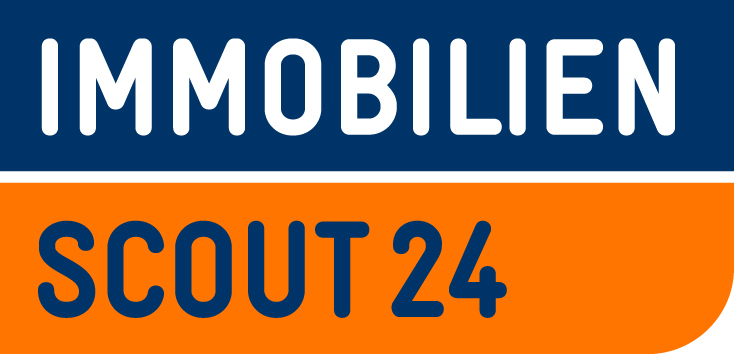
ImmobilienScout24 empowers people to live their dreams for property by making the entire experience simple, efficient and stress-free. We are a tech company that drives business and technological innovation.

As part of the Otto Group, OTTO is one of the most successful e-commerce companies and the largest online retailer of fashion and lifestyle in Germany. We generate about 80 percent of our total revenues through otto.de and other specialist online shops.

idealo internet GmbH, a subsidiary of Axel Springer AG, is Germany’s largest online price comparison service. Since 2001, idealo’s mission is to help users make the best possible buying choices. Based in the very heart of Berlin with over 500 employees and several international teams, we are active throughout Europe and steadily growing.
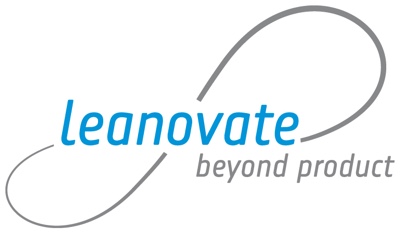
At leanovate we deliver. Combining the power of agile with decent technologies and software craftsmanship is our mission. We support our clients with building amazing products and becoming learning organizations. We offer training and coaching as well as hands-on engineering – and we love what we do. What did you learn today?
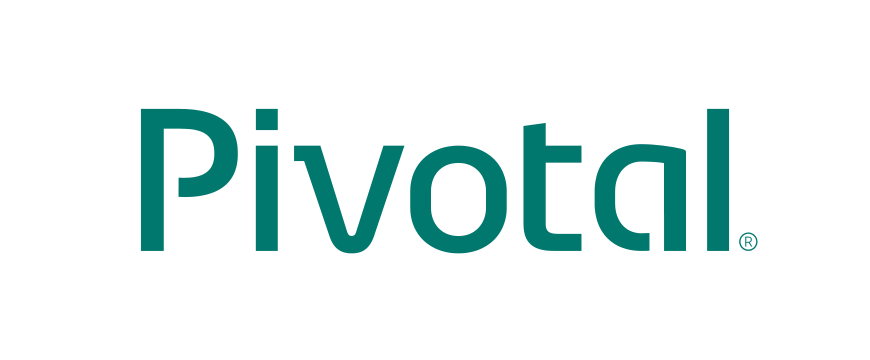
Pivotal offers a modern approach to technology that organizations need to thrive in a new era of business innovation. Our solutions intersect cloud, big data and agile development, creating a framework that increases data leverage, accelerates application delivery, and decreases costs, while providing enterprises the speed and scale they need to compete.

SoundCloud is the world’s leading audio platform, allowing everyone to discover unique content anywhere, anytime, on the web and on mobile. Today, SoundCloud reaches more than 350 million people every month around the globe, across the web, mobile, our embeddable widget and our API.

We are a software company and a community of passionate, purpose-led individuals. We think disruptively to deliver technology to address our clients' toughest challenges, all while seeking to revolutionize the IT industry and create positive social change.
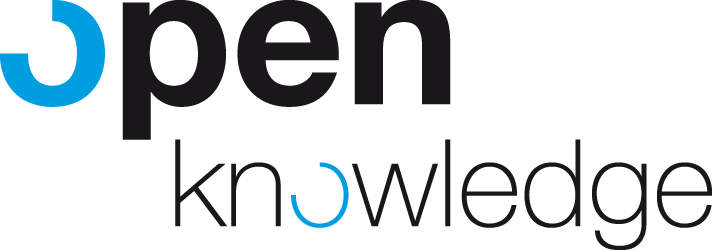
Das Team von open knowledge bietet seit mehr als 15 Jahren Beratung, Konzeption, Entwicklung und Coaching in den Bereichen Enterprise und Mobile Computing. Gemeinsam mit unseren nationalen und internationalen Kunden realisieren wir erfolgreich nachhaltige Lösungen am Puls der Zeit. Unser Erfolgsrezept? Eine gesunde Mischung aus Innovation und Erfahrung.
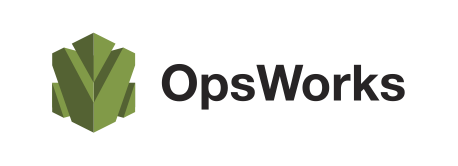
AWS OpsWorks is an application management service that makes it easy to deploy and operate applications of all shapes and sizes. You can define the application’s architecture and the specification of each component including package installation, software configuration and resources such as storage. AWS OpsWorks includes automation to scale your application based on time or load and dynamic configuration to orchestrate changes as your environment scales.




